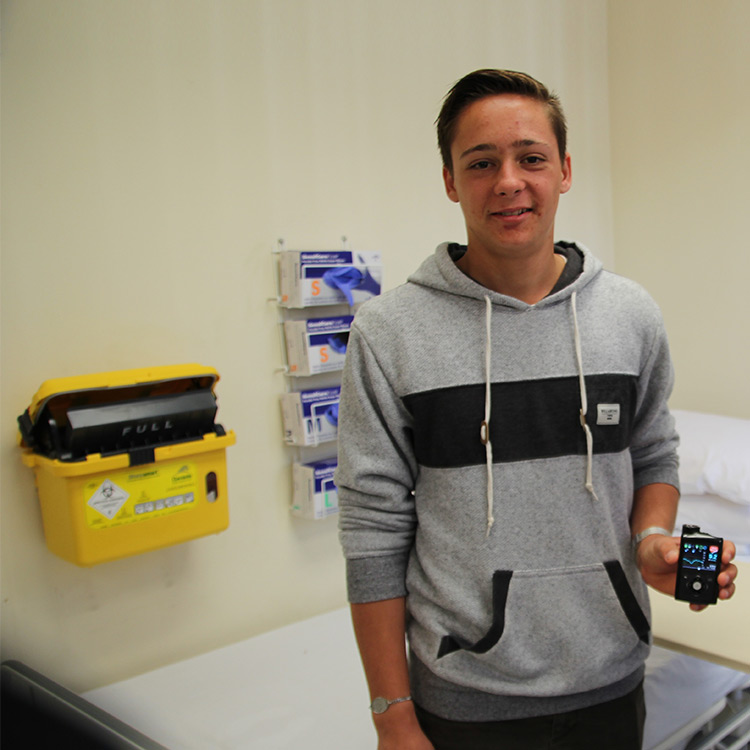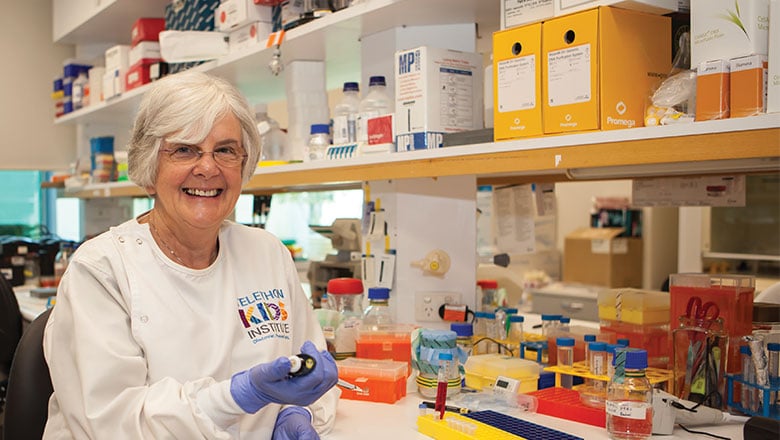Search
Research
Blood pressure in adolescents and young adults with type 1 diabetes: data from the Australasian Diabetes Data Network registryHypertension increases complication risk in type 1 diabetes (T1D). We examined blood pressure (BP) in adolescents and young adults with T1D from the Australasian Diabetes Data Network, a prospective clinical diabetes registry in Australia and New Zealand.
Research
"i Think i Could Have Used It Better": Experiences of Youth with High HbA1c Commencing Advanced Hybrid Closed-Loop Therapy in a Clinical Trial Setting - A Qualitative ResearchAdvanced hybrid closed-loop (AHCL) therapy improves glycemia. However, it is not known if there is an improvement in overall outcomes with AHCL for youth with type 1 diabetes (T1D) at high risk of diabetes-related complications. The study aimed to capture the experiences of youth with suboptimal glycemic control when commencing AHCL therapy in a clinical trial setting.
Research
Improving screening in a paediatric cohort for cystic fibrosis-related diabetes: A quality improvement projectAndré Schultz MBChB, PhD, FRACP Head, BREATH Team Head, BREATH Team Prof André Schultz is the Head, BREATH Team at The Kids Research Institute
Research
Moderate and severe diabetic ketoacidosis at type 1 diabetes onset in children over two decades: A population-based study of prevalence and long-term glycemic outcomesTo investigate in a population-based pediatric cohort: prevalence of moderate-severe diabetic ketoacidosis at type 1 diabetes diagnosis over two decades and its association with long-term glycemic control.
Research
Effects of simulated high altitude on blood glucose levels during exercise in individuals with Type 1 DiabetesCurrent exercise guidelines for individuals with type 1 diabetes (T1D) do not consider the impact that high altitude may have on blood glucose levels (BGL) during exercise.
Research
International comparison of glycaemic control in people with type 1 diabetes: an update and extensiono update and extend a previous cross-sectional international comparison of glycaemic control in people with type 1 diabetes. Methods: Data were obtained for 520,392 children and adults with type 1 diabetes from 17 population and five clinic-based data sources in countries or regions between 2016 and 2020.

News & Events
How to support a friend who has type 1 diabetesClinical psychologist from the Children's Diabetes Centre Dr Keely Bebbington has some top tips on how to support a friend who has type 1 diabetes.

News & Events
Local researchers lead biggest ‘artificial pancreas’ outpatient studyThe Children’s Diabetes Centre at The Kids Research Institute Australia is leading the longest and largest at-home trial of a hybrid closed-loop insulin pump system.

News & Events
A new approach for research with Aboriginal communitiesWinning the support of a remote Aboriginal community paved the way for a pioneering genetics study.

News & Events
Latitudinal gradient in childhood diabetesNew research from Perth's The Kids Research Institute Australia has shown the local relevance of a worldwide pattern of increased risk of childhood type 1 diabetes.
